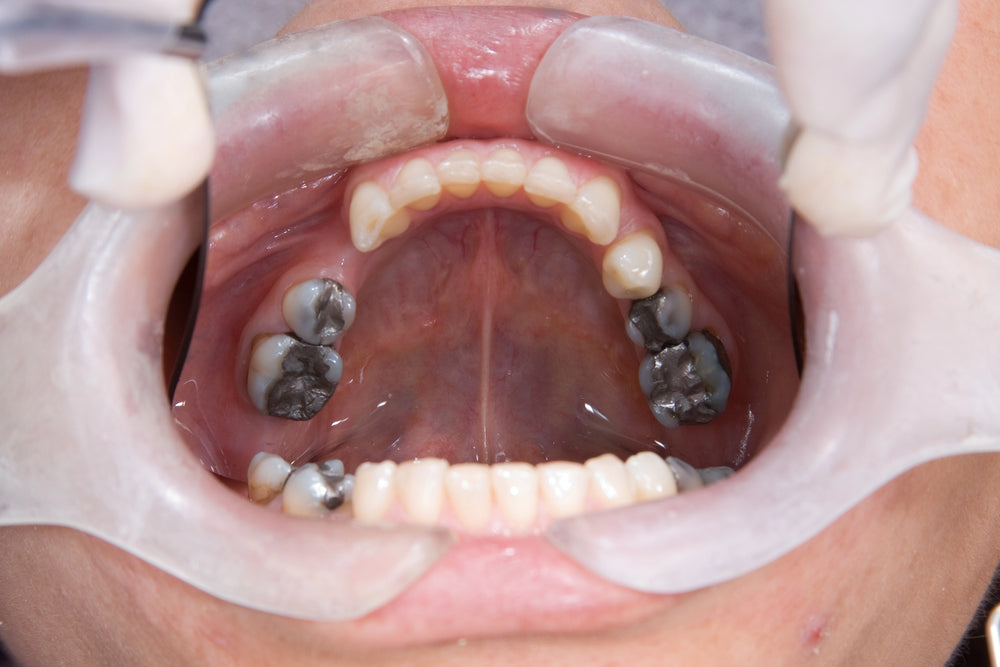
WHO NEEDS A FULL MOUTH RECONSTRUCTION?
|
Time to read 4 min
|
Time to read 4 min
If you need extensive tooth replacement or rebuilding, full mouth reconstruction may be the ideal solution for you. Full mouth reconstruction is part of restorative dentistry designed to enhance both the aesthetics of your mouth as well as improving both the health and functionality associated with having complete sets of teeth.
Full mouth reconstruction refers to an approach in which general or restorative dentists "overhaul" your smile for optimal oral health. It could involve therapeutic approaches designed to repair the damage, such as restoration of decayed or missing enamel , as well as replacement procedures designed to fill in missing spaces in your bite.
Restoring your mouth often includes both cosmetic and restorative procedures. Your dental specialists use services to address oral health challenges that affect not just how you look but your overall well-being as a whole. Your process might include different aesthetic and restorative procedures like oral surgery implants, ceramic crowns, or soft tissue grafting procedures - depending on what procedure you need.
Who needs a full mouth reconstruction? Or when do you need full mouth reconstruction? Most people need a full-mouth reconstruction with many missing teeth, big dental fillings, or damaged teeth. This is especially beneficial for those with badly broken teeth as a result of the grind or injuries sustained in sports.
Individuals born with oral disorders that are rare, for example, Ectodermal Dysplasia or Dentinogenetic Imperfect, may be candidates for a complete dental reconstruction.
Discover More: What About Oral Health And Overall Health?
The dentist will perform an extensive exam of the neck, head, and oral examination to assess the nature of the problem and the necessary treatment. The dentist will take into consideration the following:
Impressions and records
Apart from a visual examination, The dentist may also make a few notes of the mouth, which include X-ray images, x-ray scans, or impressions made of the teeth of the patient.
The design of the smile
In this phase the dentist makes a digital model of the present dental position and what they should become after the treatment.
Making the treatment plan
Utilizing the outcomes of the examination in visual form as well as the results of records and models, the dentist will discuss how to make the best mix of dental treatments. The procedure could comprise one or more of these:
The patient will receive an exact copy of the treatment plan so that they are able to review it and make a decision on how to move forward.
Treatment
Reconstruction of the mouth is completed at different phases and demands numerous appointments in the dentist's office.
Many benefits are associated with full mouth reconstruction.
Effective bad breath remedies include:
Gentle and regular scraping of the tongue
Regular oral care practices such as daily brushing and flossing
Professional deep cleanings and plaque removal
The ongoing use of oral probiotics.
One, the probiotics compete with the existing bad bacteria and reduce their presence by “crowding them out”
Two, the probiotics produce BLIS or “bacteriocin-like-inhibitory-substances” which is a technical way of stating that one probiotic strain (bacteria) can produce a substance that inhibits or kills off other bacteria. Three, by working to control gingivitis, gum disease and tooth decay these probiotics reduce the very sources of bacteria-generated odors in the mouth.
Studies have shown a clear reduction in plaque levels and gingivitis symptoms when oral probiotics were administered to patients with moderate to severe gingivitis.


